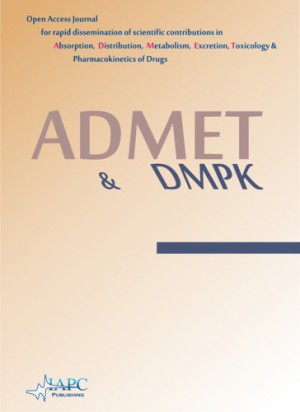
ADMET & DMPK
Yazarlar: Alex Avdeef
Konular:-
DOI:10.5599/admet.766
Anahtar Kelimeler:Aqueous intrinsic solubility,Druglike,Interlaboratory experimental error,PDISOL-X,General Solubility Equation (GSE),Abraham Solvation Equation (ABSOLV),Multiple linear regression (MLR),Random Forest regression (RFR),Quantitative structure-property relationships (QSPR)
Özet: The accurate prediction of solubility of drugs is still problematic. It was thought for a long time that shortfalls had been due the lack of high-quality solubility data from the chemical space of drugs. This study considers the quality of solubility data, particularly of ionizable drugs. A database is described, comprising 6355 entries of intrinsic solubility for 3014 different molecules, drawing on 1325 citations. In an earlier publication, many factors affecting the quality of the measurement had been discussed, and suggestions were offered to improve ways of extracting more reliable information from legacy data. Many of the suggestions have been implemented in this study. By correcting solubility for ionization (i.e., deriving intrinsic solubility, S0) and by normalizing temperature (by transforming measurements performed in the range 10-50 °C to 25 °C), it can now be estimated that the average interlaboratory reproducibility is 0.17 log unit. Empirical methods to predict solubility at best have hovered around the root mean square error (RMSE) of 0.6 log unit. Three prediction methods are compared here: (a) Yalkowsky’s general solubility equation (GSE), (b) Abraham solvation equation (ABSOLV), and (c) Random Forest regression (RFR) statistical machine learning. The latter two methods were trained using the new database. The RFR method outperforms the other two models, as anticipated. However, the ability to predict the solubility of drugs to the level of the quality of data is still out of reach. The data quality is not the limiting factor in prediction. The statistical machine learning methodologies are probably up to the task. Possibly what’s missing are solubility data from a few sparsely-covered chemical space of drugs (particularly of research compounds). Also, new descriptors which can better differentiate the factors affecting solubility between molecules could be critical for narrowing the gap between the accuracy of the prediction models and that of the experimental data.
Dergi editörleri editör girişini kullanarak sisteme giriş yapabilirler. Editör girişi için tıklayınız.